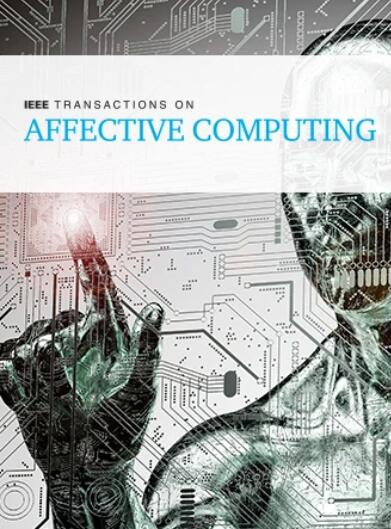GANSER:一种用于基于EEG的情绪识别的自监督数据增强框架
IF 9.6
2区 计算机科学
Q1 COMPUTER SCIENCE, ARTIFICIAL INTELLIGENCE
引用次数: 18
摘要
基于脑电图(EEG)的情感计算存在稀缺性问题。因此,使用机器学习算法,特别是深度学习模型,很难建立有效、高度准确和稳定的模型。数据增强最近表明,深度学习模型的性能有所提高,精度、稳定性和过拟合减少。在本文中,我们提出了一种新的数据扩充框架,称为生成对抗性网络自监督数据扩充(GANSER)。作为第一个将对抗性训练与自监督学习相结合用于基于脑电的情绪识别的框架,该框架生成了高质量、高多样性的模拟脑电样本。特别地,我们利用对抗性训练来学习EEG生成器,并强制生成的EEG信号近似真实样本的分布,从而确保增强样本的质量。变换操作被用来屏蔽EEG信号的部分,并迫使发生器基于未屏蔽的部分合成潜在的EEG信号,以产生各种各样的样本。在变换过程中引入了一种掩蔽可能性作为先验知识,以推广扩展样本空间的分类器。最后,大量实验表明,我们提出的方法可以提高情绪识别的性能,并取得最先进的结果。本文章由计算机程序翻译,如有差异,请以英文原文为准。
GANSER: A Self-Supervised Data Augmentation Framework for EEG-Based Emotion Recognition
Electroencephalography (EEG)-based affective computing has a scarcity problem. As a result, it is difficult to build effective, highly accurate and stable models using machine learning algorithms, especially deep learning models. Data augmentation has recently shown performance improvements in deep learning models with increased accuracy, stability and reduced overfitting. In this paper, we propose a novel data augmentation framework, named the generative adversarial network-based self-supervised data augmentation (GANSER). As the first to combine adversarial training with self-supervised learning for EEG-based emotion recognition, the proposed framework generates high-quality and high-diversity simulated EEG samples. In particular, we utilize adversarial training to learn an EEG generator and force the generated EEG signals to approximate the distribution of real samples, ensuring the quality of the augmented samples. A transformation operation is employed to mask parts of the EEG signals and force the generator to synthesize potential EEG signals based on the unmasked parts to produce a wide variety of samples. A masking possibility during transformation is introduced as prior knowledge to generalize the classifier for the augmented sample space. Finally, numerous experiments demonstrate that our proposed method can improve emotion recognition with an increase in performance and achieve state-of-the-art results.
求助全文
通过发布文献求助,成功后即可免费获取论文全文。
去求助
来源期刊

IEEE Transactions on Affective Computing
COMPUTER SCIENCE, ARTIFICIAL INTELLIGENCE-COMPUTER SCIENCE, CYBERNETICS
CiteScore
15.00
自引率
6.20%
发文量
174
期刊介绍:
The IEEE Transactions on Affective Computing is an international and interdisciplinary journal. Its primary goal is to share research findings on the development of systems capable of recognizing, interpreting, and simulating human emotions and related affective phenomena. The journal publishes original research on the underlying principles and theories that explain how and why affective factors shape human-technology interactions. It also focuses on how techniques for sensing and simulating affect can enhance our understanding of human emotions and processes. Additionally, the journal explores the design, implementation, and evaluation of systems that prioritize the consideration of affect in their usability. We also welcome surveys of existing work that provide new perspectives on the historical and future directions of this field.
 求助内容:
求助内容: 应助结果提醒方式:
应助结果提醒方式:


